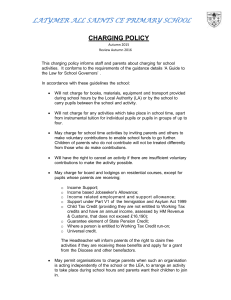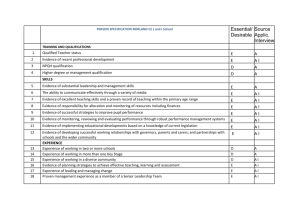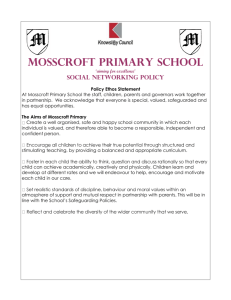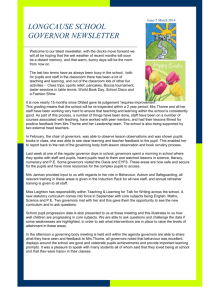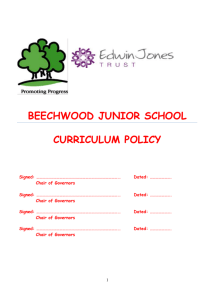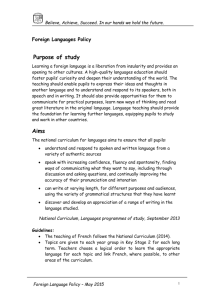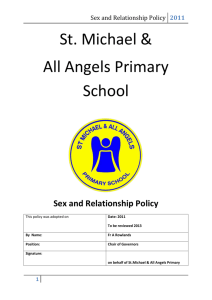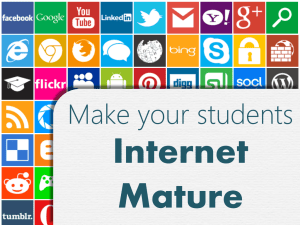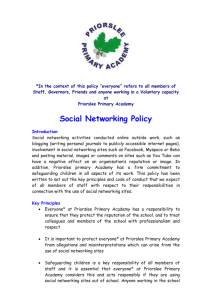here - Coastlands CP School
advertisement
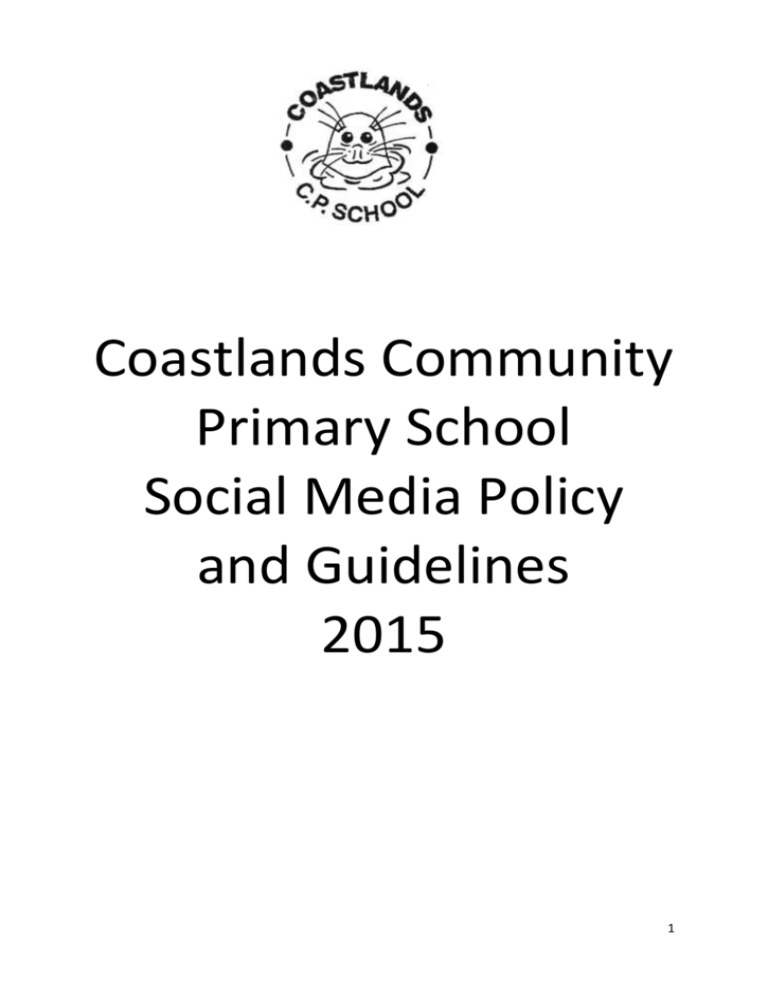
Coastlands Community Primary School Social Media Policy and Guidelines 2015 1 What is social media? Social media These are media for social interaction, using highly accessible and scalable communication techniques. Examples include: emails, Facebook, Google Plus, Twitter, Podcasts, (Vodcasts video podcasts), Text messaging, Web 2.0 tools such as Wikipedia, myspace, flickr, youtube, blogs, social bookmarking/tagging etc. Rationale for policy In a world where many children now have a mobile phone and the same number have used a social networking website, it’s imperative that as a school we not only develop social media guidelines for our pupils and staff but also teach pupils about safe and responsible social media use. At Coastlands we aim to create a school environment where adults and children are educated in 21st -century literacy and best practices in the uses of social media. We cannot under estimate the power of such communication tools if used appropriately and the risks if used inappropriately. Why do we engage in social media? Children use social media to engage and connect with friends, family and the community and to explore the globally connected worlds in which they live. Social media provide powerful communication opportunities. Relationships grow with personal, regular, and honest communication; therefore, social media provide us with powerful tools to build relationships. School Policy The widespread availability and use of social networking applications bring opportunities to understand, engage and communicate with our audiences in new and exciting ways. It is important that we are able to use these technologies and services effectively and flexibly. However, it is also important to ensure that we balance this with our duties to our school community and partners, our legal responsibilities and our reputation. This policy is to ensure: All children are safeguarded The school and its leaders and governors are not exposed to legal risk The reputation of the school and its staff and governors are not adversely affected Any users are able to clearly distinguish where information is provided via social networking applications is legitimately representative of the school. The policy covers: Employees, governors and/or elected members, partners or other third parties that use social networking applications for any school purpose Enforcement – breach of terms could result in the offending content being removed 2 Related documents – other school policies Basic principles: 1. As a member of staff- any breach of the terms set out below may amount to misconduct or gross misconduct to which the School and Local Authority Dismissal and Disciplinary Policies apply. 2. As a parent or other adult within the school community -any communications or content you publish that causes damage to the School, Local Authority, any of its employees or any third party’s reputation could result in the application or offending content being removed in accordance with the published complaints procedure. Please note: The school reserves the right to require the closure of any applications or removal of content published by School representatives which may adversely affect the reputation of Coastlands Primary School or put it at risk of legal action. Where applications allow the posting of messages online, users must be mindful that the right to freedom of expression attaches only to lawful conduct. School staff are strongly advised not to invite, accept or engage in communications with parents or children from the school community on any personal social networking sites while in employment at Coastlands Primary School. Any communication received from children to School Representatives must be immediately reported to the Head Teacher – Designated Child Protection Officer and procedures for safeguarding followed. The school expects that users of social networking applications will always exercise the right of freedom of expression with due consideration for the rights of others and strictly in accordance with these Terms of Use. Teachers will include the teaching of social media within the school curriculum. School internet policy must be used at all times when children use ICT and access the internet in school. Children will not use social media whilst under the age limits for sites / applications. Users connected to this school (parents, staff, governors, past pupils) must not post anything that is confidential, sensitive, or private. Users connected to this school (parents, staff, governors, past pupils) should follow all applicable laws, policies and guidelines. For example never post anything that you would not say eg. racist or rude comments. Users connected to this school (parents, staff, governors, past pupils) should not comment on any information that should be kept confidential. For example birthdays, addresses. All users must follow all Social Media site rules and respect copyright and fair use. Understand and use the privacy settings Facebook and Twitter. 3 3. As a child - any communications or content you publish are the responsibility of your parents/carers and you should follow the best practice guidance below: Best Practices Think twice before posting. If you wouldn't want parents or teacher to see your post, don't post it. Be accurate. If you make a mistake, own up and correct it quickly. Be respectful. Be positive. Treat others the way you would like to be treated. It's the Golden Rule! Be honest. Be transparent. Always tell the truth. Remember many different audiences will see your posts. Remember that the internet is permanent. Even if you delete something, it’s still out there somewhere. Google has a long memory! Avoid topics that may be considered objectionable or inflammatory, like politics and religion. Don't post anything that you wouldn’t say openly to adults such as comments about drug use, profanity, sexual humour, ethnic slurs, or personal insults. Be in the right state of mind when you make a post. Don't post when you're angry, upset, or your judgment is impaired in any way. Remember, the internet is permanent! If you post an opinion about anything related to this school on your own accounts, please make it clear that your post represents your OWN view and be prepared to accept the consequences. Training for adult users If you are unfamiliar with social media, it is highly recommended that you get some training! Please contact the county library service or school office for information. Related Documentation Complaints Procedure Safeguarding and Child Protection Policy Internet Policy in School 4

